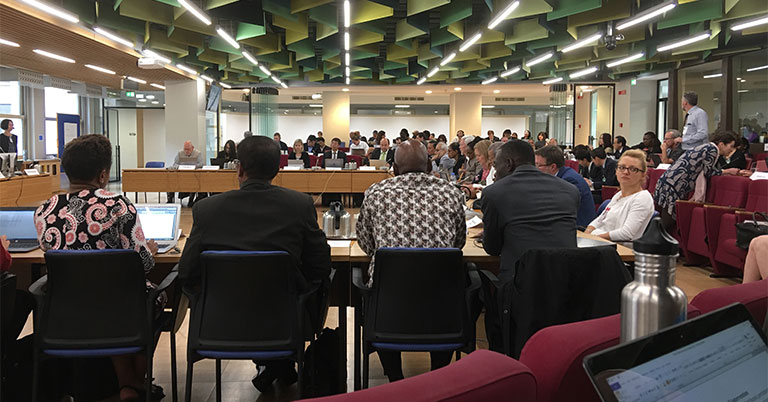First up is the Stockholm Convention’s POPs Review Committee (POPRC), which will discuss dicofol amongst other chemicals. Dicofol is an organochlorine miticide, manufactured in India and Israel, but proposed for a global ban by the European Union. This meeting will discuss the Risk Management Evaluation, the last stage of the POPRC process before a chemical goes to the Conference of the Parties (COP) for a decision on listing under the Convention. PAN Asia Pacific has provided extensive information on agroecological alternatives to dicofol for managing mites on a number of crops, and we will be working on behalf of PAN International to ensure that POPRC proposes the listing of dicofol under Annex A (for a complete global ban) without any exemptions.
The Rotterdam Conventions Chemical Review Committee begins deliberations next Sunday and has a lot of pesticides to consider, including acetochlor, hexazinone, phorate and triazophos. Of particular concern are two formulations of the insecticide lambda-cyhalothrin that have been nominated by Georgia as Severely Hazardous Pesticide Formulations. These nominations resulted from a study carried out by PAN UK in Georgia, in which they identified a number of poisoning incidents. PAN Asia Pacific has worked with PAN UK to bring extra information to the attention of the CRC to assist in the process of getting these formulations recommended for listing by the Rotterdam COP. Lambda has caused poisoning in many other countries as well, including USA, Germany, Switzerland, Turkey, UK, Chile, and Tanzania.
Unlike the Stockholm Convention, a listing under the Rotterdam Convention does not mean a global ban, but rather brings a country’s attention to the fact that these pesticides have caused problems in other countries and attention should be paid to them. Once a chemical is listed under the Rotterdam Convention countries have to give permission before another country can export the pesticide to them.








Discussion about this post